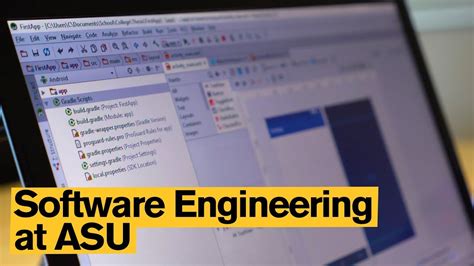Overview
Arizona State University (ASU) is a leading institution in software engineering research and education. Situated in the heart of the technology hub of Phoenix, ASU offers a comprehensive range of undergraduate and graduate programs in software engineering, attracting students from around the globe. This guide provides an in-depth exploration of Arizona State’s software engineering programs, highlighting key aspects such as curriculum, faculty expertise, research opportunities, and career prospects.

Programs and Curriculum
ASU offers a Bachelor of Science (B.S.) in Software Engineering, a Master of Science (M.S.) in Software Engineering, and a Doctor of Philosophy (Ph.D.) in Software Engineering. The B.S. program provides a solid foundation in computer science principles, software development methodologies, and software engineering practices. Students engage in hands-on projects and internships, gaining valuable practical experience.
The M.S. program emphasizes advanced concepts in software engineering, including software architecture, design patterns, and software quality engineering. Students select a specialization in one of three areas: Embedded Systems, Enterprise Systems, or Data Science. The Ph.D. program prepares students for careers in academia and research.
Faculty Expertise
ASU boasts a distinguished faculty of software engineering experts. Many have made significant contributions to the field through research, publications, and industry collaborations. The faculty engage in cutting-edge research in areas such as:
- Artificial Intelligence and Machine Learning
- Cloud Computing
- Cyber Security
- Data Engineering
- Software Architecture
Research Opportunities
Students at ASU have access to state-of-the-art research facilities and participate in ongoing projects with industry partners. The Software Engineering Research Center (SERC) provides a collaborative environment for faculty, students, and industry professionals to explore innovative software engineering solutions. SERC has received over $50 million in research funding from agencies such as the National Science Foundation (NSF) and the Department of Defense (DoD).
Career Prospects
Software engineers are in high demand in Arizona and worldwide. According to the U.S. Bureau of Labor Statistics, the employment of software developers is projected to grow by 22% by 2030, significantly faster than the average for all occupations. Graduates of ASU’s software engineering programs are well-prepared for successful careers in various industries, including:
- Technology companies
- Aerospace and defense
- Healthcare
- Finance
- Education
Strategies for Success
Succeeding in software engineering requires a combination of technical skills, problem-solving abilities, and effective collaboration. Here are some strategies to enhance your success:
- Develop a strong foundation in computer science: Master the fundamentals of data structures, algorithms, and programming languages.
- Embrace practical experience: Engage in hands-on projects, internships, and research opportunities to gain real-world experience.
- Specialize in a particular area: Select a specialized track in the M.S. program or focus your research on a specific aspect of software engineering.
- Build a strong network: Attend industry events, connect with professionals in your field, and participate in professional organizations.
Common Mistakes to Avoid
- Neglecting the importance of communication: Software engineers must be able to effectively communicate with clients, colleagues, and stakeholders.
- Overestimating technical skills: Don’t assume that technical proficiency alone will guarantee success. Focus on developing soft skills such as teamwork, project management, and critical thinking.
- Ignoring the challenges of software engineering: Software development can be complex and challenging. Be prepared for setbacks and embrace them as learning opportunities.
- Failing to stay updated with technology: Software engineering is constantly evolving. Stay informed about advancements in software development tools, methodologies, and industry trends.
How to Get Started
If you aspire to become a software engineer at Arizona State University, here’s a step-by-step approach:
- Apply to ASU: Submit your application for admission to the B.S. in Software Engineering program.
- Maintain a strong academic record: Excel in your high school coursework, particularly in math and science.
- Get involved in extracurricular activities: Showcase your passion for technology by participating in clubs, competitions, or summer programs related to software engineering.
- Apply for financial aid: Explore scholarships, grants, and student loans to support your education.
- Prepare for success: Attend orientation, connect with faculty and students, and start building your network.
Conclusion
Arizona State University offers exceptional software engineering programs that prepare students for successful careers in the field. With a strong faculty, cutting-edge research opportunities, and access to industry collaborations, ASU provides a vibrant and dynamic learning environment. By following the strategies outlined in this guide, aspiring software engineers can maximize their potential and become leaders in the digital age.
